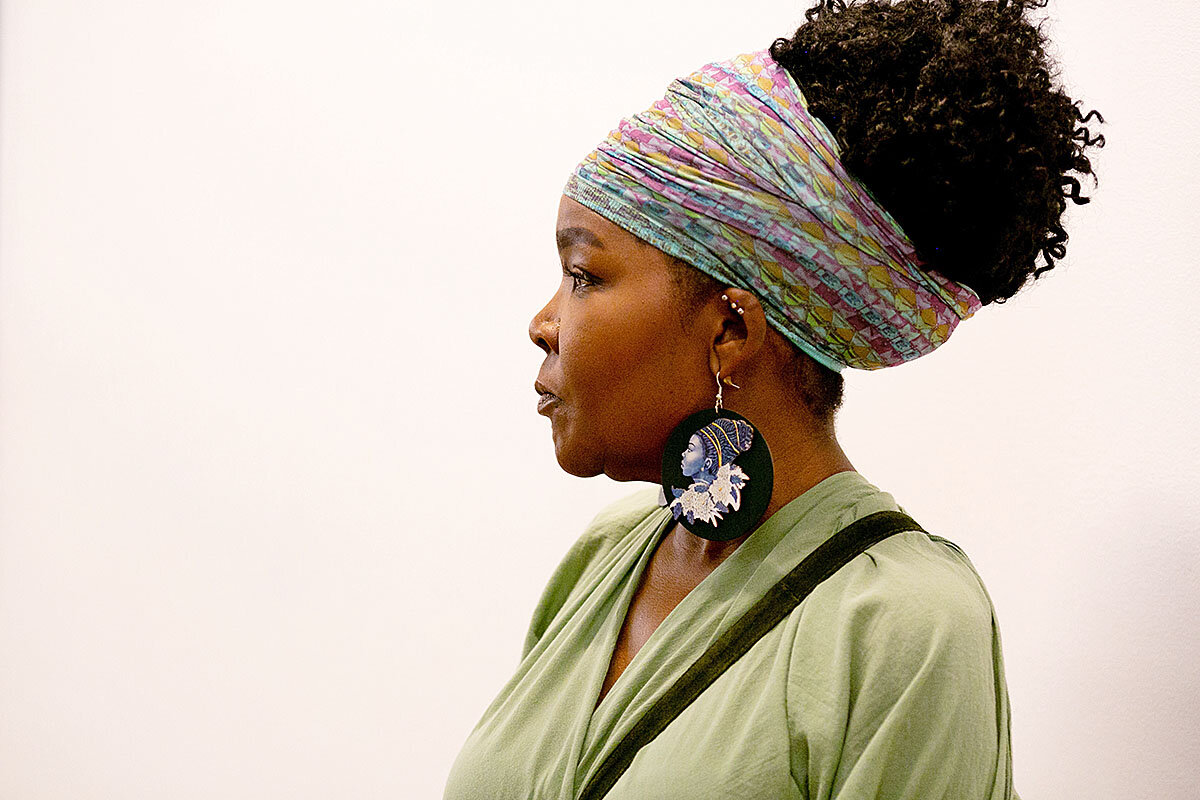The burgeoning interest of African Americans in their ancestry is helping to clarify family identities and heal the wounds of slavery. It is shaping everything from baby names to views on reparations.
Monitor Daily Podcast
- Follow us:
- Apple Podcasts
- Spotify
- RSS Feed
- Download
 Sara Miller Llana
Sara Miller Llana
Welcome to your Monitor Daily. Today’s stories include a quest for healing on the 400th anniversary of the beginning of U.S. slavery, patterns in President Donald Trump’s positioning, a fresh perspective on extreme poverty, efforts in Hungary to protect mothers and children from abuse, and an architectural homage to the peace and stillness of a composer’s work.
Every crisis has its “wake-up.” During the refugee flow into Europe in 2015, which I covered as our European correspondent, it was the death of 3-year-old Alan Kurdi that galvanized international response to Syrian refugees. For the climate crisis, the watershed moment could be news last week of the spread of fires in the Amazon.
It began with a tweet by French President Emmanuel Macron. “Our house is burning. Literally,” he wrote, calling on leading industrial nations to act over the weekend. Suddenly the Amazon became the subject of discussion around dinner tables and water coolers – and of sporadic protests worldwide.
Tensions over Amazon development are long-standing. During my time as our Latin America correspondent, I wrote about a gas pipeline in 2007 that angered international environmentalists. But locals in Amazonas were quick to explain that millions of people have to make a living in the “lungs of the Earth.”
Brazilian President Jair Bolsonaro has angered the international community over policies that tip the balance toward business over environmental protection. This time, Group of Seven leaders in Biarritz, France, held him to account, threatening to kill a trade deal between the European Union and Mercosur countries and boycott Brazilian products. For now, Mr. Bolsonaro has appeared to shift course, sending in the military to tackle the flames. For all the talk about the end of multilateralism in an age of nationalism, this weekend made clear that international cooperation is still very much the way forward.
It’s still unclear if this year’s Amazon fires will lead to long-term policy change in South America. We can at least take solace in the fact that the world is watching, and ready to respond, to the world’s challenges.










